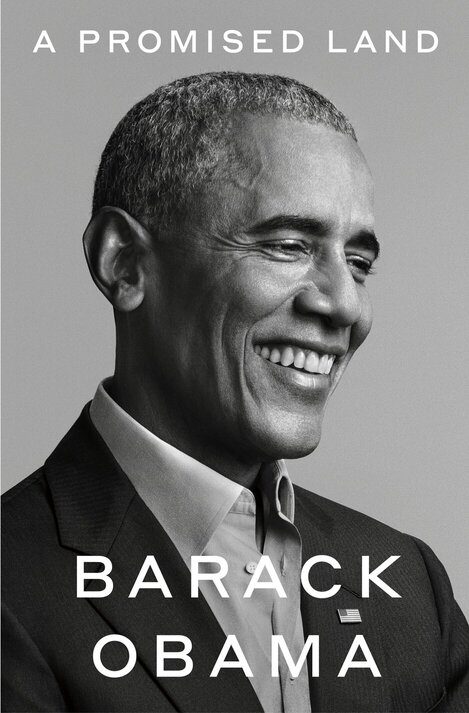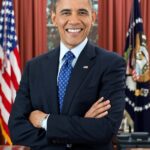I remember where I was on November 4th, 2008, when then-Senator Obama was declared the winner of the 2008 U.S Presidential election, becoming the first African American to become the president of the United States. Obama’s acceptance speech that night made me cry a lot; I had goosebumps hearing him speak and had renewed hope for the future and the power of possibility. The chant of “Yes we can” by those at the Chicago venue made it more inspiring. Obama started the speech with the following lines:
“If there is anyone out there who still doubts that America is a place where all things are possible, who still wonders if the dream of our founders is alive in our time, who still questions the power of our democracy, tonight is your answer.”
I fell in love with Barrack Obama during the 2008 election and I still get goosebumps and teary when I hear him speak. Barrack is one of my favourite living people for his audacity of hope, conviction, sense of purpose and charisma. I took me a while to finish “A promised Land” but it was worth the read.
A Promised Land is Barack Obama’s memoir that focuses on his tenure as the 44th president of the United States from 2009 to 2017. He chronicles his early upbringing, early political campaigns, family life, and his first term as president, and the book ends with the events leading to the killing of Osama bin Laden in 2011. I love Barrack so much that I bought both the 28-hours audiobook version and the 768 pages paperback version. I bought the book in November 2020 but did not get to reading it till around May-June 2022.
A promised Land is a great book that humanizes Obama and made me respect him more. Barrack writes about the challenges in his personal life, such as trying to deal with his smoking addiction, the rollercoaster challenge of balancing his political career with his marriage and family. He also spoke about how he got into politics as a way to inspire others and make sense of his mixed heritage. Barrack shared insights into the decision-making process of various tough decisions that he had to make as the most powerful man in the world. He describes the highs and lows, joys and frustrations, unpredictability, and tensions and how he navigated it with a sense of calm.
The first volume of his presidential memoirs, Barack Obama tells the story of his improbable odyssey from young man searching for his identity to leader of the free world, describing in strikingly personal detail both his political education and the landmark moments of the first term of his historic presidency—a time of dramatic transformation and turmoil.
A Promised Land – Runaway Bestseller
According to Penguin Random House, the publishers of the memoir: A Promised Land sold more than 3.3 Million units in U.S. and Canada in its first month of publication. International editions have a combined 2.85 million copies in print, bringing the book to 7.55 million copies in print worldwide.
Published on Tuesday, November 17 2020 by Crown, the hardcover U.S. edition of President Obama’s critically acclaimed memoir now has 4.7 million copies in print in the U.S. and Canada, following an initial printing of 3.4 million copies.
Favourite Takeaways from Reading – A Promised Land by Barrack Obama
Seeking Refuge in Books
“Growing up in Indonesia, I’d seen the yawning chasm between the lives of wealthy elites and impoverished masses. I had a nascent awareness of the tribal tensions in my father’s country —the hatred that could exist between those who on the surface might look the same. I bore daily witness to the seemingly cramped lives of my grandparents, the disappointments they filled with TV and liquor and sometimes a new appliance or car. I noticed that my mother paid for her intellectual freedom with chronic financial struggles and occasional personal chaos, and I became attuned to the not-so-subtle hierarchies among my prep school classmates, mostly having to do with how much money their parents had.
And then there was the unsettling fact that, despite whatever my mother might claim, the bullies, cheats, and self-promoters seemed to be doing quite well, while those she considered good and decent people seemed to get screwed an awful lot.
“All of this pulled me in different directions. It was as if, because of the very strangeness of my heritage and the worlds I straddled, I was from everywhere and nowhere at once, a combination of ill-fitting parts, like a platypus or some imaginary beast, confined to a fragile habitat, unsure of where I belonged. And I sensed, without fully understanding why or how, that unless I could stitch my life together and situate myself along some firm axis, I might end up in some basic way living my life alone.”
Mother instilled a reading habit
I didn’t talk to anyone about this, certainly not my friends or family. I didn’t want to hurt their feelings or stand out more than I already did. But I did find refuge in books.
The reading habit was my mother’s doing, instilled early in my childhood—her go-to move anytime I complained of boredom, or when she couldn’t afford to send me to the international school in Indonesia, or when I had to accompany her to the office because she didn’t have a babysitter. Go read a book, she would say. Then come back and tell me something you learned.
Smoking Addiction and quitting
THERE WAS A final stress reliever that I didn’t like to talk about, one that had been a chronic source of tension throughout my marriage: I was still smoking five (or six, or seven) cigarettes a day.
It was the lone vice that had carried over from the rebel days of my youth. At Michelle’s insistence, I had quit several times over the years, and I never smoked in the house or in front of the kids. Once elected to the U.S. Senate, I had stopped smoking in public. But a stubborn piece of me resisted the tyranny of reason, and the strains of campaign life—the interminable car rides through cornfields, the solitude of motel rooms—had conspired to keep me reaching for the pack I kept handy in a suitcase or drawer.
After the election, I’d told myself it was as good a time as any to stop—by definition, I was in public just about anytime I was outside the White House residence. But then things got so busy that I found myself delaying my day of reckoning, wandering out to the pool house behind the Oval Office after lunch or up to the third-floor terrace after Michelle and the girls had gone to sleep, taking a deep drag and watching the smoke curl toward the stars, telling myself I’d stop for good as soon as things settled down.
“Sometimes it didn’t matter how good your process was. Sometimes you were just screwed, and the best you could do was have a stiff drink—and light up a cigarette.”
Finally quitting smoking
“Initially, the pool game had also given me an excuse to duck out and have a cigarette on the third-floor landing. Those detours stopped when I quit smoking, right after I signed the Affordable Care Act into law. I’d chosen that day because I liked the symbolism, but I’d made the decision a few weeks earlier, when Malia, smelling a cigarette on my breath, frowned and asked if I’d been smoking. Faced with the prospect of lying to my daughter or setting a bad example, I called the White House doctor and asked him to send me a box of nicotine gum. It did the trick, for I haven’t had a cigarette since. But I did end up replacing one addiction with another: Through the remainder of my time in office, I would chomp on gum ceaselessly, the empty packets constantly spilling out of my pockets and leaving a trail of shiny square bread crumbs for others to find on the floor, under my desk, or wedged between sofa cushions.”
Faced with the prospect of lying to my daughter or setting a bad example, I called the White House doctor and asked him to send me a box of nicotine gum.
All the best in your quest to get better. Don’t Settle: Live with Passion.



Comments are closed.